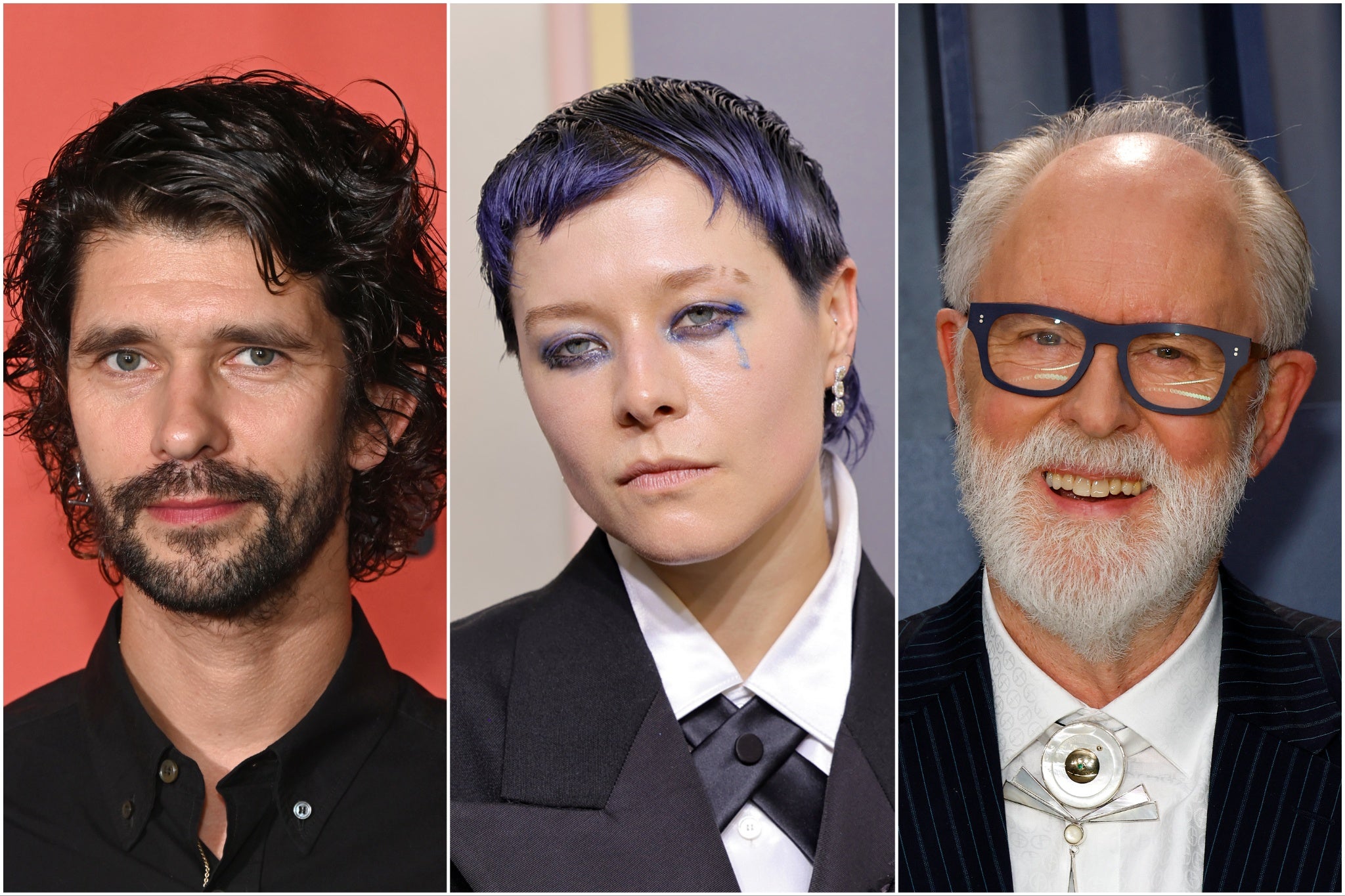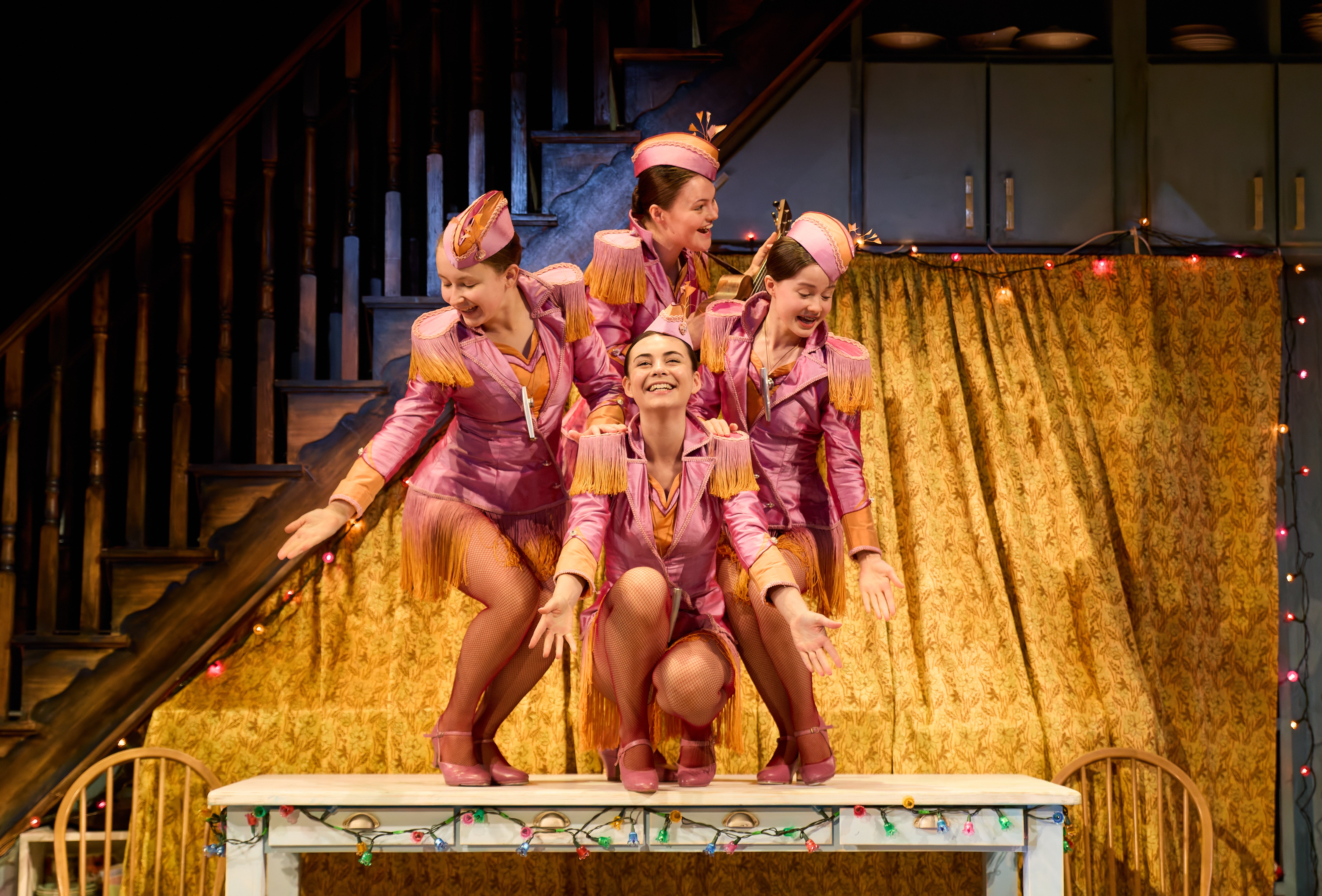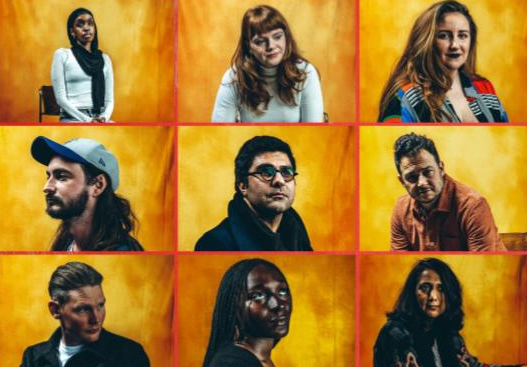Royal Court director’s first season includes play about dark side of Roald Dahl
‘House of the Dragon’ star Emma D’Arcy and ‘Skyfall’ actor Ben Whishaw are among the names billed to perform

Your support helps us to tell the story
From reproductive rights to climate change to Big Tech, The Independent is on the ground when the story is developing. Whether it's investigating the financials of Elon Musk's pro-Trump PAC or producing our latest documentary, 'The A Word', which shines a light on the American women fighting for reproductive rights, we know how important it is to parse out the facts from the messaging.
At such a critical moment in US history, we need reporters on the ground. Your donation allows us to keep sending journalists to speak to both sides of the story.
The Independent is trusted by Americans across the entire political spectrum. And unlike many other quality news outlets, we choose not to lock Americans out of our reporting and analysis with paywalls. We believe quality journalism should be available to everyone, paid for by those who can afford it.
Your support makes all the difference.The Royal Court has announced the inaugural season from newly appointed artistic director David Byrne.
The London theatre, which is known for championing new voices in playwriting, will showcase nine new plays, starring actors including House of the Dragon’s Emma D’Arcy, Skyfall’s Ben Whishaw, and Killers of the Flower Moon star John Lithgow.
The Sloane Square venue has helped launch the careers of notable playwrights including Jez Butterworth, Lucy Prebble, and Martin McDonagh.
D’Arcy and Whishaw will perform alongside Kayla Meikle in Margaret Perry’s adaptation of Maggie Nelson’s 2019 book Bluets, directed by Katie Mitchell. The play will explore themes such as depression, desire, pain, and obsession.
Meanwhile, Lithgow will play Roald Dahl in Mark Rosenblatt’s debut Giant, directed by Sir Nicholas Hytner. The play will examine Dahl’s antisemitism, putting the personal views of the popular children’s author under the microscope. The play will likely fuel more debates surrounding his work, which caused a controversy last year when it was revealed that his novels were to be republished with significant edits to the language.
Hytner, who ran the National Theatre from 2003 to 2015 and has since set up the Bridge Theatre, is a surprising inclusion in the season given that he is more of an establishment figure. Hynter’s involvement may be part of a wider desire within the theatre industry to help the historic writing theatre get back on track.

In Iran playwright Nassim Soleimanpour’s and Omar Elerian’s ECHO (Every Cold Hearted Oxygen), a different performer will take the stage every night, performing a script they’ve never seen before, with no knowledge of what is being asked of them. The play is said to be an exploration of what it feels like to be an immigrant.
Sabrina Ali’s Dugsi Dayz – a comedy exploring Somali, Muslim culture and female friendship, inspired by the 1985 movie The Breakfast Club – will also debut at the Royal Court following an award-winning run at the Edinburgh Fringe and national tour.
The new season arrives after the theatre faced an onslaught of poor reviews from critics and backlash from playwrights who had previously associated themselves with the court.
Butterworth, who had opened almost all of his plays at the Royal Court, decided to send his most recent play, Hills of California, straight to the West End because he didn’t feel “connected” to the new-writing theatre anymore.
“You’ve got to feel it, haven’t you? I spent ten years going to see everything that was on there after Jerusalem, but I don’t really feel a connection any more,” he told The Times last month.

Meanwhile, the court’s 2022 show, The Glow, was called “the worst play of the year” byThe Spectator, with The Times publishing an article titled: “What’s gone wrong at the Royal Court?”
In September, the theatre’s former artistic director Vicky Featherstone said that a bad review of a play could have a “destructive impact” on its producers and performers because of the shame and embarrassment that it brings.
A critique “can change the physiology connected to how you feel about a work, and that is very, very destructive”, Featherstone said.
This new season is also underpinned by uncertainty in the building. It has been widely reported that the court’s entire literary department is under threat from redundancies, which is responsible for overseeing applications of 2,000 plays a year via its script submissions system.
The Stage reported last month that the literary department had entered into a consultation period with employees to take voluntary redundancy in a process designed to secure its long-term future.
The Royal Court’s accounts filed last year highlighted that it had suffered a five per cent cut to its Arts Council England funding, with chair Anthony Burton warning it would be “devastating to deal with as we approach our plans for next year”.

A representative for The Royal Court said that the theatre has experienced a range of “ongoing challenges”, but stipulated that the artistic team remains intact and that all literary programmes, including writer’s groups and year-round open script submissions, continue. They declined to comment on individual staffing matters.
“As has been widely reported, the Royal Court Theatre, like much of the UK arts industry, has been heavily impacted by a challenging funding climate, the continued impact of the pandemic and cost of living crisis, whilst rising costs and high rates of inflation have caused drastic uplifts in the cost of mounting productions,” they told The Independent.
“Faced with these ongoing challenges The Royal Court has undergone a process which has seen a range of measures taken to secure the long-term future of the organisation.”
“The Royal Court’s commitment to supporting writers remains at the centre of all we do.”
David Byrne, Artistic Director of the Royal Court, said the new season ushers in a “new generation of bold voices with big, messy stories to tell; world-renowned artists rubbing alongside insurgent new talent, igniting some unmissable theatre on our stages”.
“Times may be difficult but we’re up for the challenge, and the mission of the Court – to champion brave writers that push us forward - has never been more vital. Come join us, I want to take everybody along for the ride,” he said.
Join our commenting forum
Join thought-provoking conversations, follow other Independent readers and see their replies
Comments